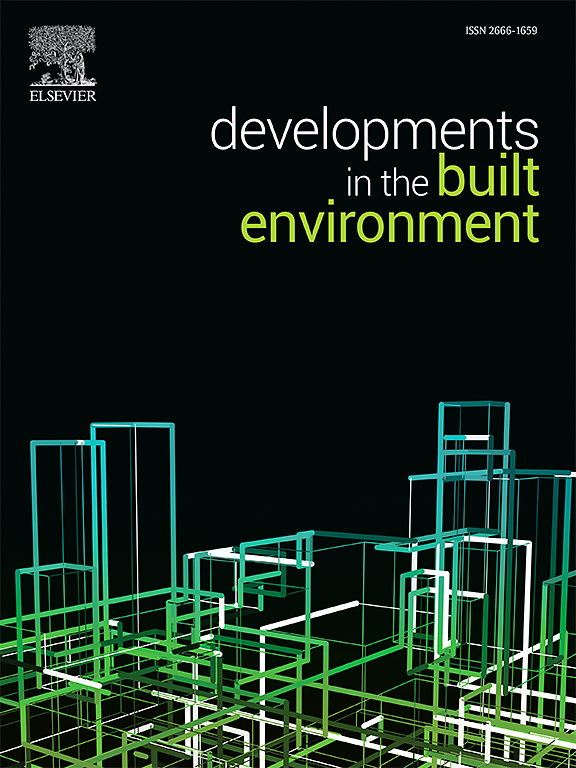玉米废料衍生的生物炭作为一种可持续的细骨料用于气候适应型城市路面的透水混凝土
IF 8.2
2区 工程技术
Q1 CONSTRUCTION & BUILDING TECHNOLOGY
引用次数: 0
摘要
本研究介绍了一种新型透水混凝土,采用玉米废料衍生的生物炭作为天然细骨料的部分替代品。与之前用生物炭代替水泥的工作不同,该设计使用生物炭作为可持续的生物细骨料,取代了7.5 - 12%的细砂。优化后的混合物(BPC3)的28天抗压强度为14.7 MPa,总孔隙率为27.3%,透水性为4.21 mm/s。这些值满足透水路面的功能要求。从摇篮到闸门的生命周期评估显示,与传统透水混凝土相比,温室气体排放量减少了21.6%。这种环境效益源于生物炭中的碳固存,并避免了露天焚烧玉米秸秆产生的二氧化碳排放。这些结果表明,玉米-生物炭透水混凝土可以提供必要的机械和水力性能,同时大幅降低隐含碳,为可持续路面建设提供了低碳解决方案。本文章由计算机程序翻译,如有差异,请以英文原文为准。
Corn waste-derived biochar as a sustainable fine aggregate in pervious concrete for climate-resilient urban pavement applications
This study introduces a novel pervious concrete incorporating corn waste-derived biochar as a partial replacement for natural fine aggregate. Unlike prior work that substitutes biochar for cement, this design uses biochar as a sustainable bio-fine aggregate, replacing 7.5–12 % of fine sand. The optimized mix (BPC3) achieved a 28-day compressive strength of 14.7 MPa, a total porosity of 27.3 %, and a water permeability of 4.21 mm/s. These values meet the functional requirements for permeable pavements. A cradle-to-gate life cycle assessment revealed a 21.6 % reduction in greenhouse gas emissions compared to conventional pervious concrete. This environmental benefit arises from carbon sequestration in biochar and avoided CO2 emissions from the open-field burning of corn residues. These results demonstrate that corn-biochar pervious concrete can deliver the necessary mechanical and hydraulic performance while substantially reducing embodied carbon, offering a low-carbon solution for sustainable pavement construction.
求助全文
通过发布文献求助,成功后即可免费获取论文全文。
去求助
来源期刊

Developments in the Built Environment
Multiple-
CiteScore
7.40
自引率
1.20%
发文量
31
审稿时长
22 days
期刊介绍:
Developments in the Built Environment (DIBE) is a recently established peer-reviewed gold open access journal, ensuring that all accepted articles are permanently and freely accessible. Focused on civil engineering and the built environment, DIBE publishes original papers and short communications. Encompassing topics such as construction materials and building sustainability, the journal adopts a holistic approach with the aim of benefiting the community.
 求助内容:
求助内容: 应助结果提醒方式:
应助结果提醒方式:


